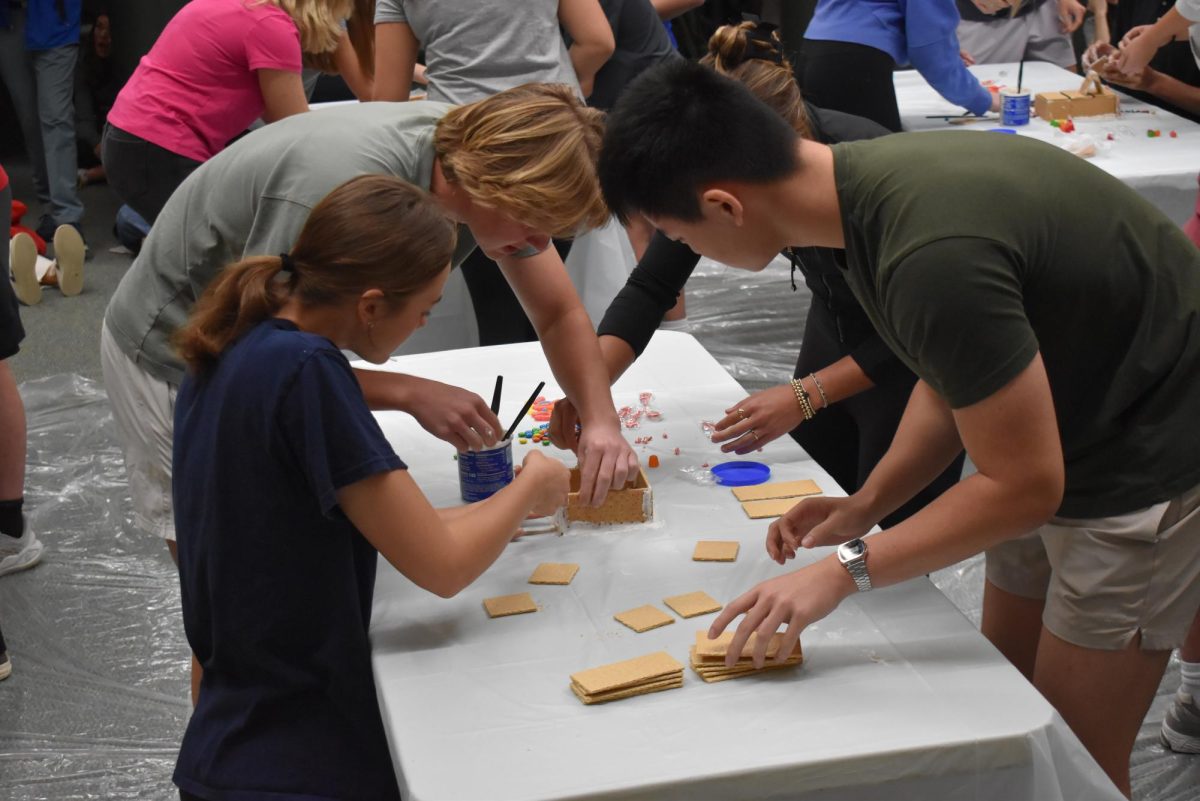Are we getting enough sleep?
From homework to sports , students often have busy schedules and often don’t get the recommended amount of sleep. Here’s some thoughts on getting to bed at a reasonable time.
Many students are up all night due to homework and busy schedules.
February 18, 2021
Almost every teenager can agree that the most dreadful moment of the day is when they are awakened by the blaring sound of their alarm clock or phone in the morning. After hitting snooze a few times and contemplating whether or not to stay in bed for “just five more minutes,” the moment comes when you finally convince yourself to get out of bed and start the day.
I will be the first to admit that I was not regularly getting a good night sleep at the beginning of the school year. After spending the summer staying up to watch Netflix or Youtube until 4am and sleeping in until noon, it was hard to adjust back to a regular sleeping schedule.
Obviously the time came when I had to wake up at 6am again, and let me tell you, it wasn’t easy. I would be up for hours studying for tests or cramming in a last-minute homework assignment. I would be lucky to get six hours of sleep in, and it seemed like every morning I had to drink a cup of coffee just to function properly.
According to the Centers for Disease Control and Prevention (CDC), students ages 6-12 should be sleeping for about 9-12 hours. They also recommend teenagers 13-18 to get 8-10 hours of sleep every night. Even more surprising is the fact that 7 out of 10 high school students in the country don’t get enough sleep each night due to their busy schedules and excess amount of homework.
This made we wonder why 70% of high school students don’t get enough sleep every night. Is it only because of homework? Or perhaps homework isn’t the only problem. Is there anything that we can do to still get a reasonable amount of sleep?
Obviously the heavy workload plays a major factor into the amount of sleep that we get each night. Many students also play sports throughout the year and have a very busy line up of practices and games throughout the week.
Student-athlete Nikole Cosentino explained that due to her busy sports schedule (she plays varsity basketball, a team that watches film until 4 pm and practices until 6:30pm), along with a heavy workload each night, she often only gets 3-5 hours of sleep.
Cosentino said that after she showers and eats, it’s already late into the night, “I stay up until I finish [all my homework] while also playing four sports throughout the year. I have to give up something and normally it’s my sleeping schedule.”
Although there isn’t much that we can do to change the amount of school work we get each night or when we have practices and games, there are a few ways and habits that we can implement into our daily lives that can help us manage our time effectively so that we can head to bed at a more reasonable time.
One new habit that I have begun to implement into my everyday life is limiting the amount of screen time before I go to sleep each night. It is recommended by the Cleveland Clinic not to use any screens including a phone, computer, or television, 30 minutes before going to bed. When we check our phones, we engage our brains, which can prolong our awake time before bed.
Another easy way you can manage your time more efficiently is using your study hall as a time to get as much work done as possible.
Although Cosentino has a very busy athletic schedule, she tries to alleviate the amount of homework by cramming during study hall. “Especially during the spring season when I dual sport I have double the games and practices so it is helpful to work ahead in as many classes as possible,” she said.
Like Nikole, I set goals for myself each day during study hall to make sure I get the most out of the period. That way, when I get home, I may only have to finish up one more quick assignment and then spend the rest of the night studying.
I have found it to be much easier to not procrastinate and wait until the night before to start reviewing for a test or quiz on the following day. Even if I dedicate 10-15 extra minutes to each of my classes each night throughout the week just to quickly look over my notes and worksheets, it becomes easier when it comes to doing the final studying the night before. I feel more familiar and confident about the material as I have already reviewed it earlier and I can spend less time studying right before the test.
Just implementing new habits such as not using your phone right before you sleep and not procrastinating can really help you go to bed at a more reasonable time and get a better night sleep.




























































